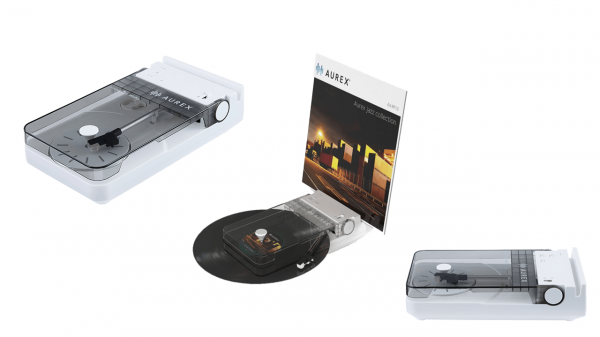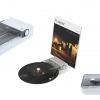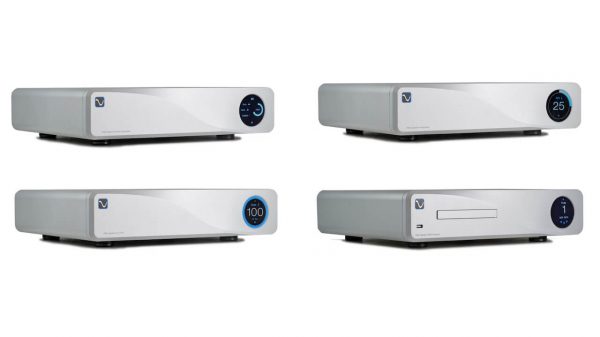4 OUT OF 4 CONGRESSIONAL LEADERS AGREE: ANALOG CUT-OFF DATE NEEDED TO COMPLETE DTV TRANSITION
CEA’s 10th Annual HDTV Summit Focuses on the End of Analog; Success of HDTV
Arlington, Virginia — 3/16/2005. With the end of the analog television era in clear sight, digital television (DTV) government and industry leaders convened today for the Consumer Electronics Association’s (CEA) 10th annual HDTV Summit – “The Analog Cut-Off: What Will It Take? What Are the Opportunities?” Four congressional DTV leaders led a chorus of support for the establishment of a hard cut-off date for analog television broadcasts that resounded throughout the conference.
“Soon, DTV will be known as TV,” said CEA President and CEO Gary Shapiro as he opened the conference. “The standout will remain HDTV. CEA has aggressive projections for future HDTV sales, but how American consumers will judge our work remains to be seen and largely depends on our actions going forward.”
Stating CEA’s support for a date-certain for the analog cut-off, Shapiro laid out policy prescriptions for the swift completion of the DTV transition, including Federal Communications Commission (FCC) enforcement of cable industry reliance upon the same security as consumer electronics manufacturers. Shapiro also pushed for DTV promotions by all industries involved in the transition.
Several members of Congress addressed the crowded convention center during morning keynotes, all expressing their support for a date-certain for the end of analog broadcasts The first keynote speaker, Congressman Joe Barton (R-TX), chairman of the House Committee on Energy and Commerce, indicated he would introduce legislation on the issue later this spring or summer.
“Everybody wants the certainty of a set date except for the broadcasters,” Barton said. He stated that the projected $4 billion to $5 billion windfall that is expected from the auction of the returned spectrum could help fund the transition costs for those consumers who cannot afford to buy digital tuners. He concluded by encouraging Summit attendees to get involved on Capitol Hill and educate lawmakers about how the digital transition affects consumers.
“I’m on the same page as Joe Barton,” said Chairman of the House Subcommittee on Telecommunications and the Internet Fred Upton (R-MI), as he took the podium following Chairman Barton. “The cut-off could be financed by the proceeds of the spectrum auction. Education is a critical component in preparing the consumer.”
Senator John Ensign (R-NV), chairman of the Subcommittee on Technology, Innovation and Competitiveness, completed the morning keynotes. “A date certain is what we need so there is predictability in the market so consumers will invest.” He added, “Educate members of Congress why a date certain is so important.”
The first panel session of the day featured industry experts and policymakers who weighed in on factors impeding the transition. Gigi Sohn, president and co-founder of Public Knowledge, and CEA’s Shapiro immediately agreed broadcasters were the most notable hurdle to the transition. Defending his industry, MSTV President David Donovan countered that consumers were ultimately blocking the transition. The entire panel agreed more consumer education is needed by industry and Congress and that the best date for an analog cut-off is sooner, rather than later. Several argued, however, that the original date of 2006 is still the goal.
DTV trends and sales projections dominated an informative sales forecast panel moderated by Los Angeles Times Staff Writer Jon Healey. Panelists who had been “bearish” about DTV sales in the early years of the transition, noted that falling prices and increasing content were driving larger numbers of DTV sales than they had previously predicted.
“An important consideration for driving future sales is to sell the experience, including what HD shows are available, instead of just focusing on the technology,” offered panelist Philip Swann, CEO of TV Predictions. Fellow panelists Sean Wargo, CEA director of industry analysis, and Josh Bernoff, Forrester vice president and principal analyst, announced updated DTV sales projections. Wargo said DTV unit sales would reach 20 million units in 2005 alone, amounting to 36 million cumulative units sold since introduction; Bernoff was more cautious, projecting total DTV unit sales of 50 million from market introduction in 1998 through 2009.
Senator John McCain (R-AZ), former Chairman of the Senate Commerce Committee, addressed Summit attendees during the 5th Annual Academy of Digital Television Pioneers Awards luncheon as he accepted his award for Best DTV Government Leadership. McCain, who also backs a hard analog cut-off date, expressed his support for Chairman Barton’s bill and pledged to continue to work so that millions would be able to appreciate high-definition television. Awards also were presented to other leaders in the digital television transition and content development. For a full list of award winners, visit www.ce.org.
The future of the analog spectrum and the end of the 18-year DTV transition were the topics of discussion in the final session of the Summit, entitled “Beyond HD Technology: Opportunities for the Returned Analog Spectrum.” Moderator Drew Clark of the National Journal’s Technology Daily led a dialogue on how companies expect to participate in the 700 megahertz band. Panelists from the information technology and wireless industries pointed to numerous possible uses, including public safety and third-generation (3G) wireless services, such as full streaming video. The panelists also debated whether licensing the spectrum space would inhibit technological innovations and whether wireless communication would be the best use of the newly freed space.
The 10th annual HDTV Summit concluded with an HDTV prize drawing from ESPN HD and speculation about what next year’s Summit will have in store. Many agreed the 11th annual HDTV Summit will likely focus on financing the cut-off date and continued broadcaster resistance.
About CEA:
The Consumer Electronics Association (CEA) is the preeminent trade association promoting growth in the consumer technology industry through technology policy, events, research, promotion and the fostering of business and strategic relationships. CEA represents more than 2,000 corporate members involved in the design, development, manufacturing, distribution and integration of audio, video, mobile electronics, wireless and landline communications, information technology, home networking, multimedia and accessory products, as well as related services that are sold through consumer channels. Combined, CEA’s members account for more than $121 billion in annual sales. CEA’s resources are available online at www.CE.org, the definitive source for information about the consumer electronics industry.
CEA also sponsors and manages the International CES – Defining Tomorrow’s Technology. All profits from CES are reinvested into industry services, including technical training and education, industry promotion, engineering standards development, market research and legislative advocacy.























